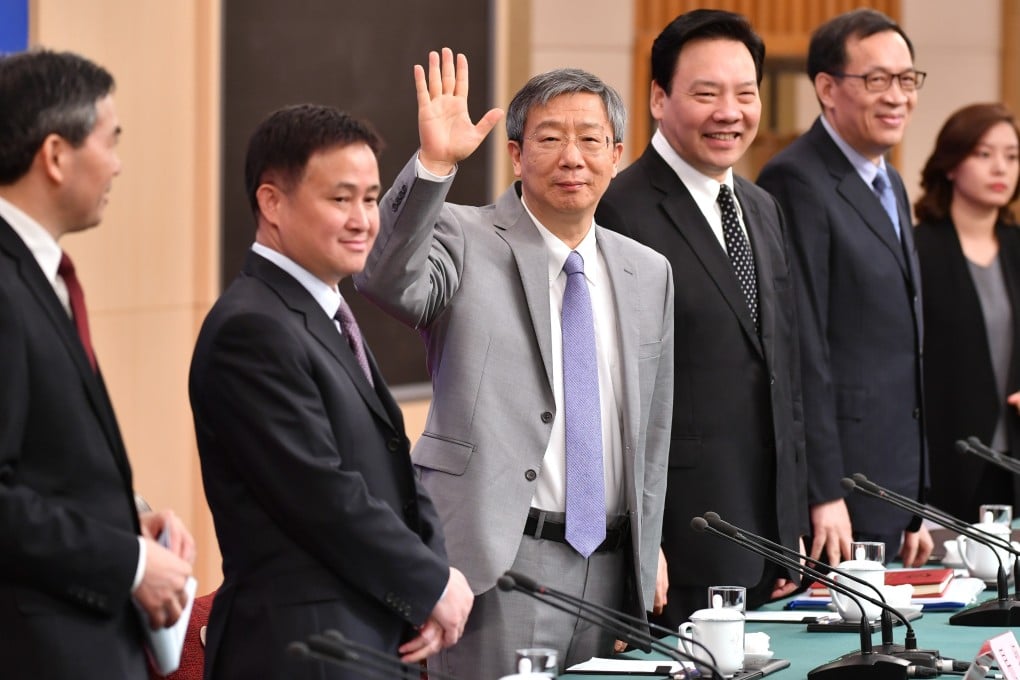China may be banking on market reforms rather than interest rate cuts to boost growth, analysts say
- Comments by People’s Bank of China governor Yi Gang seen as giving no hint of imminent benchmark interest rate cut
- Analysts continue to see government relying on tax cuts and infrastructure spending, rather than easier monetary policy, to stabilise growth

Plans by China’s central bank for financial market reforms suggest it is unlikely to start cutting benchmark interest rates in the near future despite domestic demand and economic growth continuing to weaken, analysts said.
People’s Bank of China (PBOC) governor Yi Gang said on Sunday that the central bank would pursue structural reforms to increase market competition in setting lending rates that would result in lower real financing costs, especially for small and micro private sector enterprises.
In particular, breaking up banking monopolies, improving bankruptcy laws and stricter enforcement of financial regulations could increase price transparency and reduce administrative fees, Yi said.
China’s banking sector is dominated by the big four state-owned lenders – the Industrial and Commercial Bank of China, the China Construction Bank, the Agricultural Bank of China and the Bank of China – which generally avoid lending to small and medium-sized businesses because of the greater risk involved. They prefer lending to big, state-owned enterprises not because they are more efficient but because their loans carry the implicit backing of the mainland government.

Chinese officials have long said they would reform the financial sector to make it more market driven, but Yi’s comments, in the middle of a trade war with the United States, suggest he sees reforms as a better path than aggressive monetary easing to help stabilise the economy.